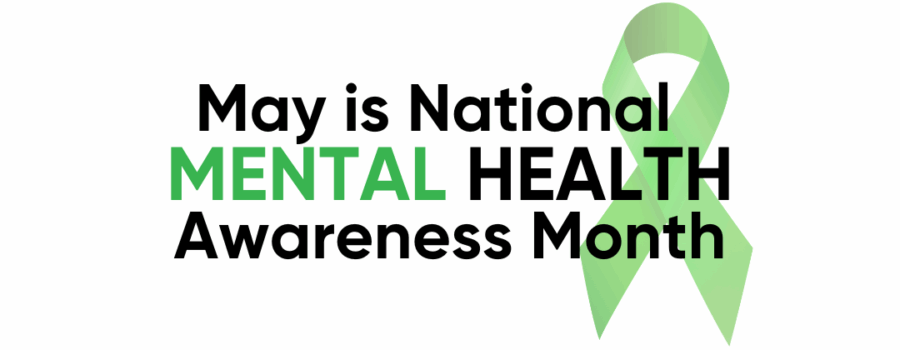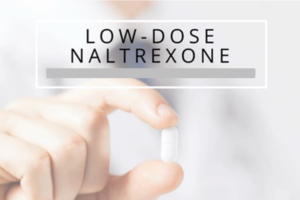As a pioneering hormone replacement clinic, we’re dedicated to optimizing your health, and during Mental Health Awareness Month this May, we’re shining a light on a critical but often overlooked factor: the link between low hormone levels and mental health. Hormones like testosterone, estrogen, and progesterone play a vital role in regulating mood, cognition, and emotional well-being. When these hormones dip, the effects can ripple through your mental state, impacting everything from your energy to your relationships. Here’s how low hormones can affect your mental health and what you can do about it.
The Hormone-Mental Health Connection
Hormones serve as chemical messengers, regulating brain function and emotions. Low levels of key hormones often go undetected, disrupting mental health and leading physicians to prescribe antidepressants without addressing the root hormonal cause. For example:
- Low Testosterone: Research indicates men with low testosterone are 1.8 times more likely to experience depression, showing symptoms like irritability, low motivation, and brain fog (Journal of Clinical Endocrinology & Metabolism, 2018). Women with low testosterone also face significant challenges, including mood swings, persistent brain fog, reduced libido, and slower recovery from physical or mental stress, impacting overall well-being.
- Low Estrogen: In women, declining estrogen—common during menopause or perimenopause—can increase anxiety and mood swings. Research indicates a 20% higher risk of depressive symptoms in women with low estrogen (Menopause Journal, 2020).
- Low Progesterone: Often called the “calming hormone,” low progesterone can lead to anxiety, insomnia, and emotional volatility, particularly in women during menstrual cycles or postpartum periods.
These hormonal imbalances don’t just affect mood—they can impair focus, reduce resilience to stress, and even strain relationships. For instance, a 2019 study in the Journal of Sexual Medicine found that low testosterone reduced intimacy satisfaction by up to 40% in couples, highlighting the emotional toll.
Symptoms to Watch For
Low hormone levels can manifest in mental health symptoms that are easy to dismiss as “just stress” or “aging.” Be on the lookout for:
- Persistent sadness or irritability
- Anxiety or restlessness
- Difficulty concentrating or memory lapses
- Fatigue despite adequate sleep
- Loss of interest in activities or relationships
If these sound familiar, your hormones might be playing a role. At our clinic, we’ve seen countless patients regain their mental clarity and emotional balance after addressing hormonal deficiencies.
How Hormone Replacement Therapy (HRT) Can Help
Hormone replacement therapy, when tailored to your unique needs, can be a game-changer for mental health. By restoring optimal hormone levels, HRT can:
- Boost Mood: Balanced testosterone and estrogen levels can reduce depression and anxiety symptoms, helping you feel like yourself again.
- Sharpen Cognition: Improved hormone levels enhance focus and memory, countering brain fog.
- Enhance Resilience: Proper hormone balance supports your ability to handle stress, improving emotional stability.
Our clinic uses cutting-edge diagnostics to assess your hormone levels and create personalized HRT plans, ensuring safety and efficacy. We also offer peptide therapies, which can complement HRT by supporting overall wellness and recovery.
Taking Action This May
Mental Health Awareness Month is the perfect time to prioritize your well-being. If you’re struggling with mood changes, fatigue, or mental fog, don’t ignore the possibility of low hormones. Here’s how to start:
- Get Tested: A simple blood test can reveal your hormone levels. Did you know you can easily order labs from our website? Don’t wait, order today by clicking this link.
- Consult Our Experts: Our team, including patient care specialists, is here to answer questions about HRT or peptide therapy. Book a free session this May to learn more!
- Adopt Healthy Habits: Support your mental health with regular exercise, a nutrient-rich diet, and stress-reducing practices like meditation.
A Healthier Mind Starts Here
As pioneers in hormone optimization, we believe mental health is inseparable from physical health. Low hormones don’t have to hold you back from living your best life. This May, take the first step toward clarity, balance, and joy by exploring how hormone replacement therapy can support your mental well-being. We’re here to guide you every step of the way.
Ready to reclaim your mental health? Schedule your free consultation today and join our community of empowered patients!







